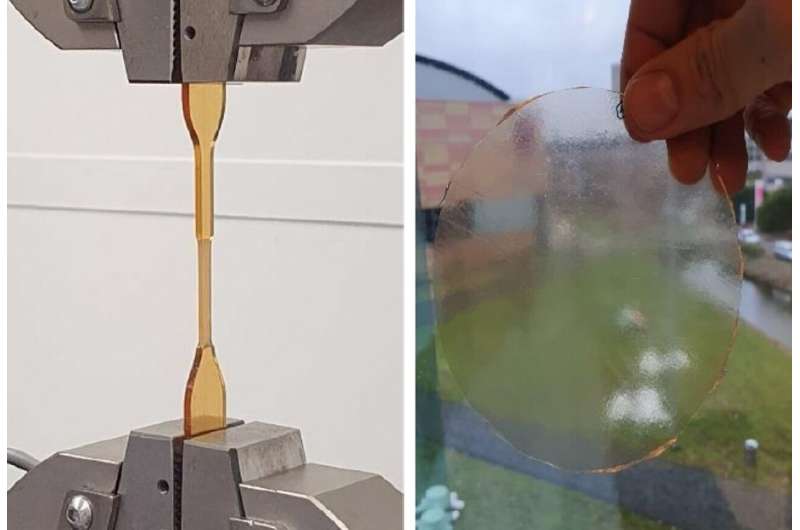An important step toward strong, durable bio-based plastics

In a recent paper in Nature Communications, researchers at the Industrial Sustainable Chemistry group led by Prof. Gert-Jan Gruter take an important step towards the production of fully bio-based, rigid polyesters.
They present a simple, yet innovative, synthesis strategy to overcome the inherently low reactivity of bio-based secondary diols and arrive at polyesters that have very good mechanical- and thermal properties, and at the same time high molecular weights. It enables the production of very strong and durable bio-based plastics from building blocks that are already commercially available.
The research described in the Nature Communications paper was carried out within the RIBIPOL project funded by the Dutch Research Council NWO with contributions from industry, notably LEGO and Avantium. The toy company supported the project as part of the search for non-fossil alternatives for its plastic bricks. Avantium is interested in bottle- and film applications. First author of the paper is Ph.D. student Daniel Weinland, who graduated on October 27. In total, five Ph.D. students are involved in the RIBIPOL project, of which two have defended their thesis recently.
Rigidity is key
In general, polyester plastics are synthesized from small dialcohol and diacid molecules. These monomers are coupled in a condensation reaction, resulting in a long polymer chain of molecular building blocks in an alternating fashion. The macroscopic material properties result both from the number of building blocks that make up the polymer chain, and from the inherent properties of the monomers.
In particular their rigidity is key to a firm, strong and durable plastic. In this regard, the glucose-derived dialcohol isosorbide is unique among potential bio-based monomers. It has a very rigid molecular structure and is already industrially available.
However, isosorbide is rather unreactive, and in the past two decades it has proven quite challenging to obtain useful isosorbide-based polyesters. It was nearly impossible to arrive at sufficiently long polymer chains (to achieve a certain ductility) while incorporating sufficiently high amounts of isosorbide (to arrive at a strong and durable material).
Incorporating an aryl alcohol
Weinland and his RIBIPOL colleagues have overcome this impasse by incorporating an aryl alcohol in the polymerization process. This leads to in situ formation of reactive aryl esters and a significant enhancement of the end group reactivity during polycondensation, the last stage of polyester synthesis when isosorbides low reactivity inhibits chain growth in traditional melt polyesterification. As a result, high molecular weight materials could be produced with incorporation of high fractions of the bio-based, rigid secondary diol, even up to 100 mol%.
For the first time, high molecular weight poly(isosorbide succinate) could be produced, the polyester obtained from isosorbide and succinic acid. The resulting strong plastics outperform existing plastics like PET in terms of heat resistance, which is for instance relevant for re-use—think of washing bottles that takes place at 85 °C. The isosorbide-based polymers also show promising barrier and mechanical properties that can outperform common fossil-based materials.
The novel polymerization approach described in the paper is characterized by operational simplicity and the use of standard polyester synthesis equipment. It suits both existing and novel polyester compositions; the researchers foresee exploration of previously inaccessible polyester compositions based on monomers with a low reactivity but also the application of similar methods in other classes of polymers such as polyamides and polycarbonates.
More information: Daniel H. Weinland et al, Overcoming the low reactivity of biobased, secondary diols in polyester synthesis, Nature Communications (2022). DOI: 10.1038/s41467-022-34840-2
Journal information: Nature Communications
Provided by University of Amsterdam





















